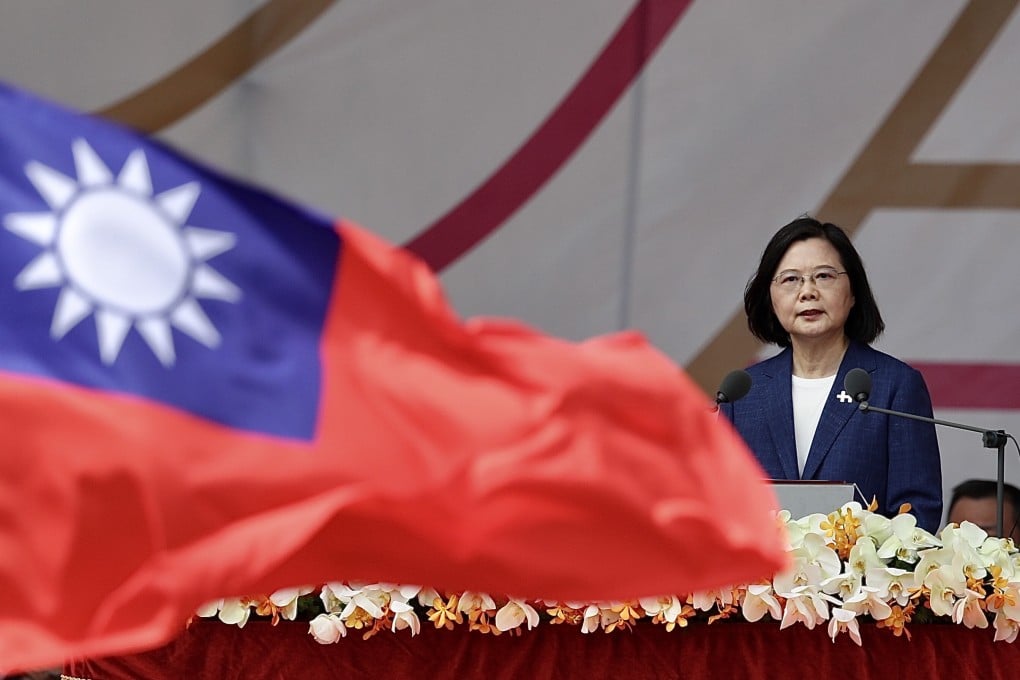Tsai Ing-wen says Taiwan must ‘resist annexation’ – a day after Xi Jinping’s call for reunification
- Tsai says island and mainland should not be ‘subordinate to each other’ in speech to mark foundation of first Chinese republic
- Taiwanese leader says she wants to improve cross-strait relations, but warns the Taiwanese people will not ‘bow to pressure’

“Let us here renew with one another our enduring commitment to a free and democratic constitutional system, our commitment that the Republic of China and the People’s Republic of China should not be subordinate to each other,” she said on Sunday.
Her remarks came a day after Xi told a meeting in Beijing to mark the anniversary that “the reunification of the motherland by peaceful means is most in line with the overall interests of the Chinese nation, including our compatriots in Taiwan”.
“Taiwan independence separatism is the biggest obstacle to achieving the reunification of the motherland, and the most serious hidden danger to national rejuvenation,” Xi said.
“Those who forget their ancestors, betray the motherland, or split the country are doomed. They will definitely be spurned by the people and judged by history.”